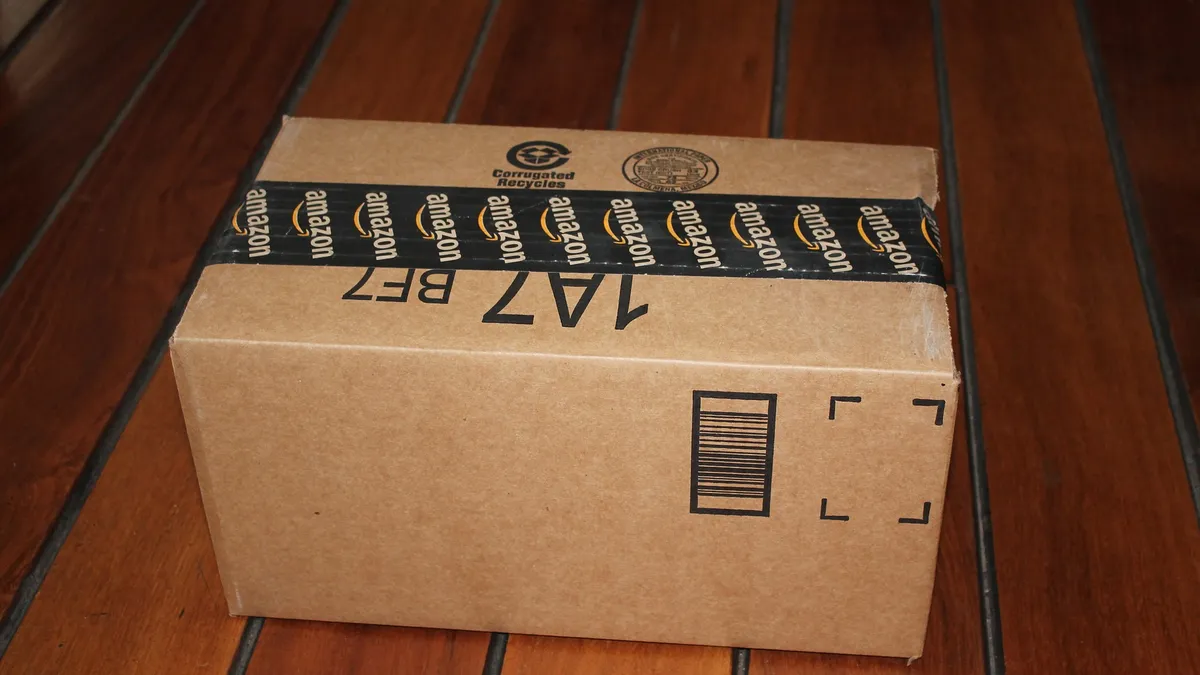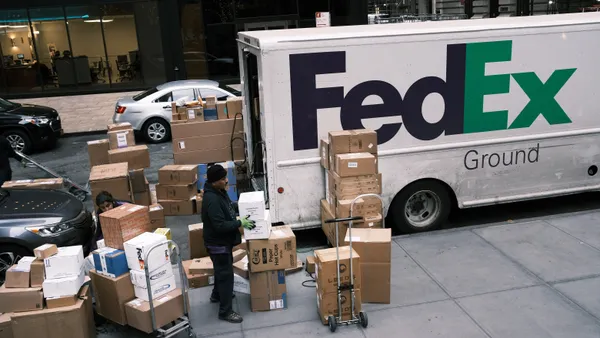Dive Brief:
- Police in Jersey City, New Jersey, are coordinating with Amazon to plant fake Amazon parcels with GPS tracking on doorsteps equipped with doorbell cameras in a sting operation to catch thieves, reported the Associated Press.
- Police officers said one box sat out for just three minutes before it was taken; the culprit was later caught.
- Similar operations involving various package carriers have taken place in Washington, California, Utah and New Mexico, according to AP.
Dive Insight:
The size of the problem of package theft is not firmly understood, and carriers do not release data on the subject, but even a tiny percentage of the hundreds of millions of packages that will be delivered this year makes for a large number.
In a 2017 survey, 31% of respondents reported having a package stolen in their lifetime according to the Shorr Package Theft Report. 53% reported changing their plans to receive a package even though it didn't require a signature and 41% refrain from purchasing certain items, most commonly electronics, online because of the possibility of theft.
Urban areas, like Jersey City, are particularly affected, which has led to several venture-backed tech solutions along with options from the carriers themselves.
Latch makes a digital lock that can be operated remotely to offer access to buildings for package delivery. Amazon's answer is a similar digital lock. Starship Technologies employs package delivery robots that set a convenient delivery window with customers using an automated text message system.
Carriers have added options like pickup lockers, requiring a signature, store pickup, delivery rerouting and greater visibility into the path of package but often still recommend finding a secure address to send packages as the best way to avoid theft.
New efforts by law enforcement to crack down on package theft may offer another valuable, albeit lower-tech tool against package theft: deterrence.
For customers, who often end up bearing the expense, the consequence of package theft is money and time spent reporting and pursuing a claim. But for carriers, on top of the time spent responding to claims, the penalty can be serious reputational harm.
LaserShip for example, was the subject of a searing report in New York Magazine last year that called the carrier "the most hated company on the internet."













